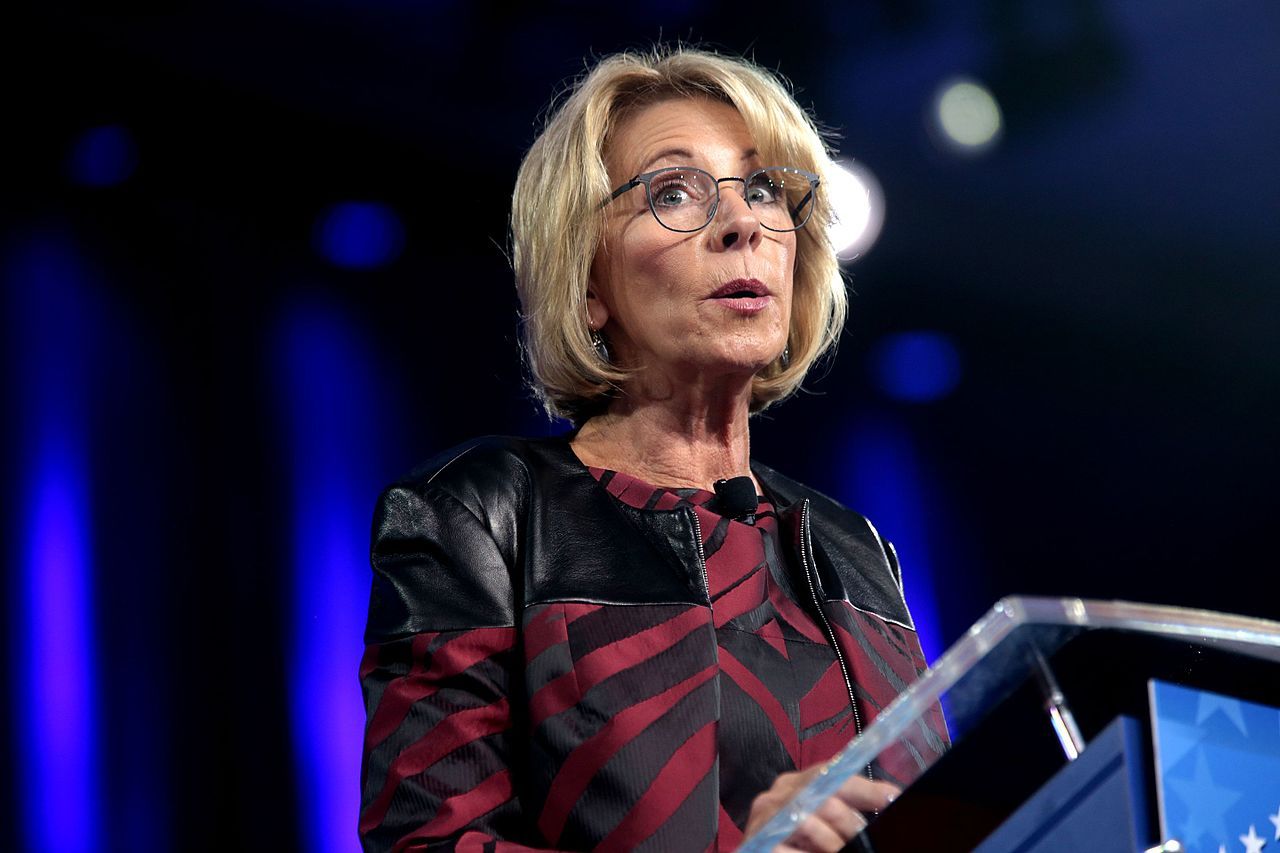The University of Maryland SGA was one of several campus groups to submit public comments against U.S. Education Secretary Betsy DeVos’ proposed changes to Title IX guidelines over winter break.
The proposals — which would replace Obama-era guidelines — give more rights to the accused and notably change how universities handle sexual misconduct cases and allegations.
The 60-day comment period for the public to submit their input on the proposals opened Nov. 29 and ends on Wednesday. Since most of the period came over winter break, this complicated the Student Government Association’s work to raise awareness, said Julia Novick, the group’s director of sexual misconduct prevention, who spearheaded the efforts.
“I think that it’s probably not coincidental that break aligned with [the] public comment period,” the junior English and public health major said. “It’s not a time where universities could easily meet and communicate with one another in order to put forth really strong work that’s going to rally a lot of people.”
[Read more: After football scandal, UMD’s SGA wants student athletic fee to be opt-in]
At least five other organizations — Preventing Sexual Assault, the Pride Alliance, TransU, College Democrats and Period — have submitted their own public comments as well, and Novick said others are in the works.
The comment period begins when the Federal Register officially publishes the proposals and departments can choose how long to make the comment period. The duration of the comment period is typically 30 to 60 days, but it can extend longer depending on the complexity of the issue.
The university’s Office of General Counsel is working with the Office of Civil Rights and Sexual Misconduct to draft a public comment, interim OCRSM director Andrea Goodwin said in an email Jan. 26.
“Our feedback is primarily related to the issues of Cross Examination in a live hearing by the other [parties’] advisor,” Goodwin wrote. “[W]e are suggesting that they give institutions the flexibility to conduct our investigations in a less formal, less legalistic manner while ensuring due process rights for both parties.”
Goodwin also said the offices took issue with the proposed limited definition of sexual harassment and limitations in jurisdiction.
“We would like the ability to address all sexual misconduct in a manner that meets the needs of our institution,” Goodwin added.
[Read more: For the first time, UMD’s SGA will have black and women’s caucuses]
Before break, the SGA passed a resolution officially condemning certain elements of the proposal, such as the narrower definition of sexual harassment, higher standard of evidence and reduced university liability. On Jan. 4, the SGA submitted its own public comment echoing many of those same views.
“The UMCP SGA believes that all universities must be held accountable in conducting fair and equitable investigations of sexual harassment and assault,” read the comment Novick wrote. “These proposed rules would greatly decrease survivor’s’ ability to report cases and get the justice that they deserve.”
Since then, the SGA has focused its efforts on advocating against the proposals in other ways. Members have submitted additional public comments and encouraged other groups to weigh in during the comment period, which included starting a social media campaign using the hashtag #NotMyIXUMD.
Originally set to close on Monday, the comment period was extended to Wednesday because the website was down for a few days in January due to technical issues. PSA organizational outreach chair Elena LeVan encourages groups to use the extra days to voice their opinions.
“I think this is something that really personally affects students,” the sophomore psychology major said. “We’re allowed to comment on it and say what we think and say what’s not right about it, so people should really take advantage of that opportunity.”
On the last day of the comment period, right before Wednesday’s SGA meeting, Novick plans to hold a workshop for legislators and SGA members to put together their own individual public comments.
SGA president Jonathan Allen also signed on to a collective public comment from multiple universities’ student body presidents, which will be submitted to the U.S. Department of Education Tuesday, he said. Moving forward, Allen also hopes to advocate for legislation at the state level.
Public comments are ultimately just one way the SGA can advocate against the legislation, Allen said.
“There’s also just public pressure, statements and being vocal about our displeasure with the proposed regulation changes, urging our state and federal representatives to be vocal as well,” he said. “But at the end of the day, this is going to be a continuous conversation … so long as some of these issues aren’t passed into law.”



